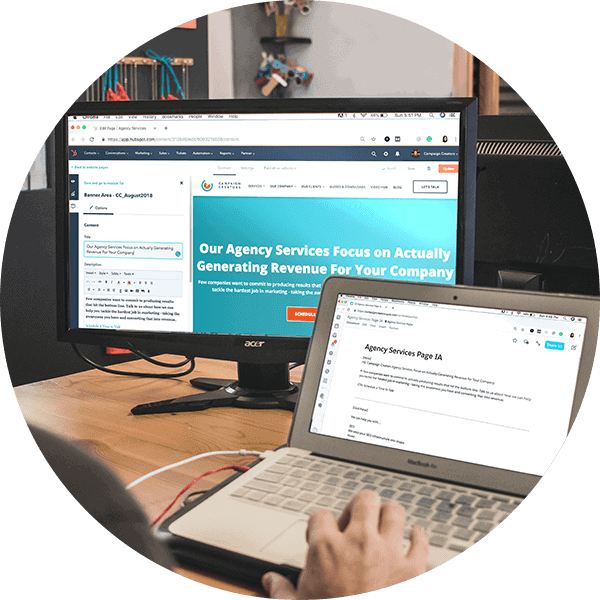
Where Is A Good Place To Buy Backlinks?
March 13, 2015
Is SEO a Scam?
April 14, 2015 Inbound marketing is a phrase that has been around a while, but it’s one you may not be familiar with. You’re probably more familiar with phrases like ‘internet marketing’ or ‘digital marketing.’ While there are many similarities, inbound marketing is specifically focused on:
Inbound marketing is a phrase that has been around a while, but it’s one you may not be familiar with. You’re probably more familiar with phrases like ‘internet marketing’ or ‘digital marketing.’ While there are many similarities, inbound marketing is specifically focused on:
-
- Attracting visitors to your site
- Converting visitors into leads
- Closing leads into sales
- And finally, delighting your customers
Inbound marketing is marketing to people that are searching for your product or service online. It involves identifying where a person is in the buying journey and then providing content to help them through the process.
-
- Are they trying to determine if they have an issue?
- Have they realized and expressed symptoms of a potential issue or problem?
- Have they identified and given a name to their problem or opportunity?
- Have they determined a solution, strategy or approach?
- Are they considering options, i.e. comparison shopping?
Inbound Marketing Tactics
Inbound Marketing is comprised of many different tactics, You’re probably familiar with most of these.
-
-
- SEO – Search Engine Optimization
- Content Marketing
- PPC (Pay Per Click) Advertising
- Social Media Marketing
- Email Marketing
- Marketing Automation
-
The tactics you utilize on a particular campaign may vary, but true Inbound Marketing is utilizing these various tactics to Attract, Convert, Close and Delight customers.
How is Inbound Marketing different than Outbound Marketing?
Another way to define Inbound Marketing is to tell you what it isn’t. Outbound marketing focuses on finding customers, while inbound marketing is focused on getting found by potential customers. Outbound marketing is advertising your product service to people while they’re doing other things. Some of the more common tactics outbound marketers use are trade shows, display advertising, direct mail and radio and TV advertising. Outbound marketers are working to build brand awareness and hoping to hit people at just the right time.
On the other hand, inbound marketing targets people who are actively searching the internet for information about products or services they want. The beauty of inbound marketing is that the leads come to you when they’re most ready to purchase.
How Does Inbound Marketing Work?
People are always searching the internet for information about the products and services you provide. They’re looking for solutions to their problems or opportunities, and consume content that will help them through the process. Think how-to’s, specifications, customer reviews, white papers, ebooks and more.
Using an inbound marketing strategy, your website is optimized to attract these prospects through various forms of content marketing like SEO, blogs, social media, and video. Inbound marketers are focused on engaging these prospects by providing valuable content while gathering key information from each prospect. Once they volunteer information, you can effectively consider them a pre-qualified lead. They came to your site, showed some interest, gave you some information in exchange for more information about your product or service.
Is Inbound Marketing Right For You?
Inbound marketing is not for all businesses. All businesses can utilize some of the tactics for lead generation. However, inbound marketing is especially effective at generating and nurturing leads for businesses that have any of the following:
-
-
- High cost products or services
- Long research cycles
- Long sales cycles
- Complex service offerings
- Knowledge-based products
-
As I’m sure you can tell, there are many moving parts to an effective inbound marketing strategy. So much so that many businesses either avoid it altogether or struggle to do it correctly. Unless you have sufficiently trained in-house resources, you’re probably going to be better off by working with an experienced Inbound Marketing agency. To learn more, check out our new e-book, “25 Website ‘Must-Haves’ For Driving Traffic, Leads, and Sales. 








